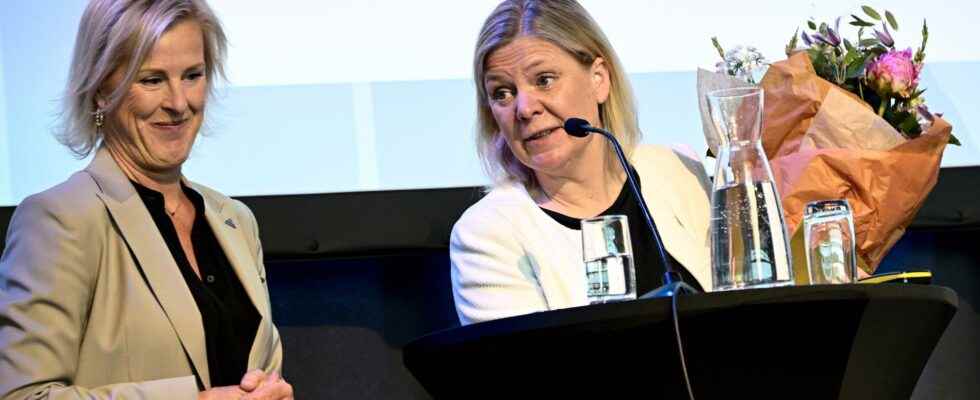The government coldly expects to get a no in the Riksdag about changed rules for independent schools.
– I have a majority of the Swedish people with me in this matter, but not a majority in the Riksdag, says Prime Minister Magdalena Andersson.
Andersson devoted part of his speech to the representatives at the Swedish Teachers’ Association’s union meeting in Stockholm to criticize what she calls the market school, and focused in particular on company-run independent schools and school groups.
– It is only reading the Swedish Companies Act that governs profit-driven independent schools, the goal for limited companies is to create profit. It does not say anything about students’ learning and equality and that Swedish children have the right to a good education, said the Prime Minister.
She highlighted the disadvantages she sees with the current rules and the system for the establishment and operation of independent schools.
– We have schools that compete with joy grades and Ipads, profits that are created with larger classes and fewer qualified teachers. And instead of a school that breaks segregation, it is strengthened, not least by the independent schools’ queuing system, the Prime Minister claimed.
The government has submitted a proposal to the Riksdag that is about converting school fees so that municipal schools are compensated for the responsibility they have to be able to offer a school place at any time, for example if many new students come to the municipality or if a school or independent school is closed. .
It is also, according to the Prime Minister, that the independent schools’ queuing system must be changed so that they do not screen out children whose parents do not book a queuing place early, sometimes already at birth. The current system makes it almost impossible for others to even get the chance to choose the most popular schools.
Will not
But the government’s proposal will, in all probability, be rejected soon in the Riksdag.
– I hope, of course, that parties capture their reason. Why should we pay foreign venture capitalists who run Swedish schools and give them compensation for tasks they do not have, it is completely unreasonable. It is just a way to send our tax money to tax havens when they should go to students and teachers, the Prime Minister told TT after the speech.
When she was asked by the representatives, one was about what the government intends to do for more equal conditions across the country, regardless of who runs schools. Differences between municipal schools in cities and in smaller towns can be large, for example in the proportion of qualified teachers.
Want to control more
Magdalena Andersson has no thoughts that nationalization would be a solution, that is, to let the state take over responsibility from the municipalities.
– No, but what I see is that we need to control the school more from the government and parliament. I would like to see increased government control.
Åsa Fahlén, union chairman of the National Union of Teachers, wants the school’s part of the state subsidies to the municipalities to be given as sector subsidies that the municipalities may not use for anything other than the school.
Target contributions
– We are very interested in the financing of the school. What we see today is that it is unequal in the country. I just got a testimony here from a representative in a small and poor municipality where you would have to invest a lot in the school but can not afford it, says Fahlén.
She emphasizes that the discussion about the school must not only be about profits and areas of exclusion. When asked about different conditions between smaller towns and cities, a bigger problem than the lack of equality between independent schools and municipal schools, she answers:
– No, but just as big. We need to find a system that works across the country.
– The municipalities decide for themselves and the level of ambition is not enough in many places. The state has somehow already established that the municipal government over the school does not work, says Fahlén.
